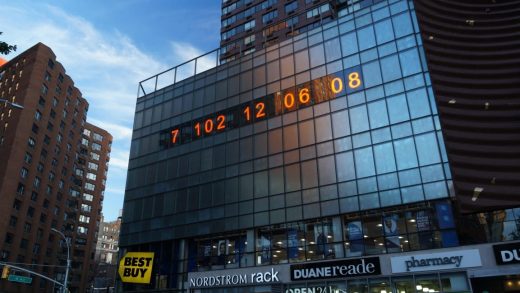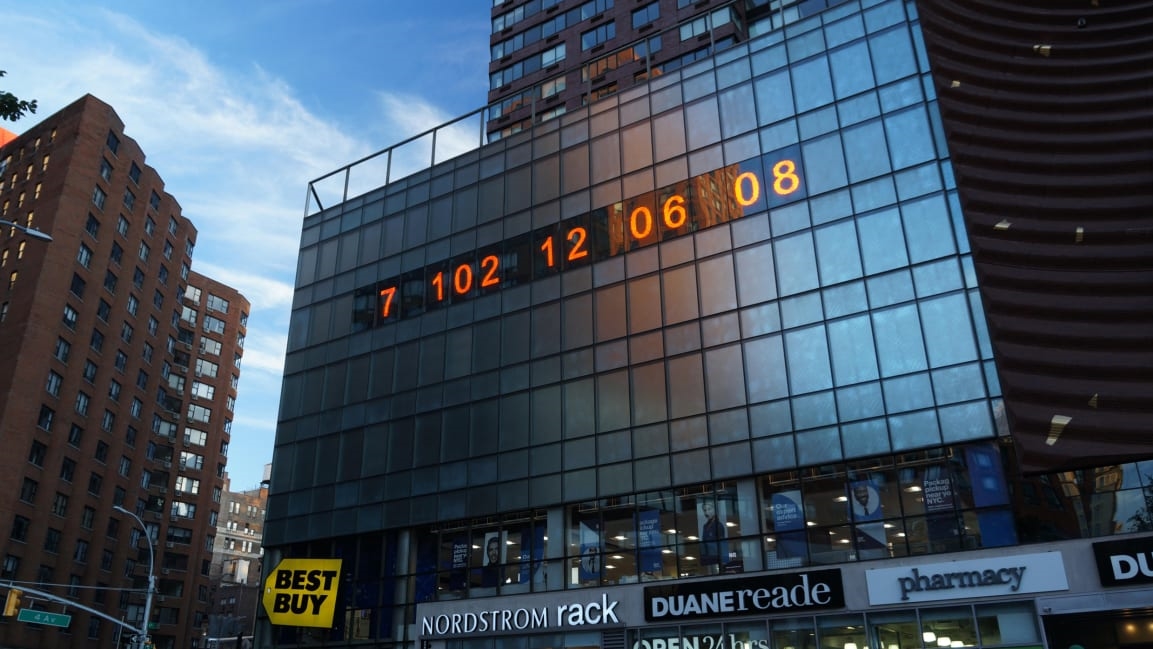Manhattan’s famous digital clock is now counting down to climate disaster
Seven years, 105 days, and 22 hours. That’s one estimate of the time that the world has left, as of 4:00 p.m. today, before we run through our total carbon budget at current rates of emissions.
The Climate Clock is a new digital clock counting down the seconds that are left in the carbon budget—the amount of greenhouse gases that can be emitted while still having a 67% chance of keeping the world under 1.5 degrees Celsius of warming. It’s now plastered on the side of a building in Union Square in New York City on the Metronome, a public artwork that previously displayed the time of day.
“We felt a monumental challenge like this needed something monumental in scale—a monument,” says Gan Golan, a designer and artist who collaborated on the project with climate artist and activist Andrew Boyd. “And we also wanted it to be in public, something that you couldn’t push out of sight, out of mind. We wanted something that would bring public attention to the climate on a daily basis, so it’s something that we can’t ignore.”
Keeping global warming under 1.5 degrees can help avoid some of the worst impacts of climate change. The clock shows just how little time is left to make that possible. “We have this incredible stark deadline that we have to reckon with,” Golan says. “But the good news is that the number isn’t zero. It’s clarifying this time window that we have to take bold action. And so we think of this not just as a deadline, but as a lifeline, as really outlining the opportunity that we have to make the kinds of bold, transformative change that is necessary.”
In an accompanying app, the artists include more detail about solutions. Another number tracks the current percentage of renewable energy in the world. An interactive tool shows how to “flatten the climate curve” and how much difference it makes to invest more now, and to move more quickly. A DIY maker kit explains how to make a countdown clock of your own. (The artists made one for Greta Thunberg at her request, and are hoping that more public clocks will be installed in other cities.)
As emissions drop, more time can be added to the clock. “This is not meant to be static,” says Golan. “This is not a statue just sitting there in our public environment. This is a dynamic message, and one that we hope people respond to so it becomes a catalyst for action. We’re hoping that the clock serves as a tool for climate organizations and advocates and activists to be able to reference to hold governments and corporations accountable. Because we can all point to this clock and say, ‘This is how much time we have left. We all need to be doing more.’”
(20)



